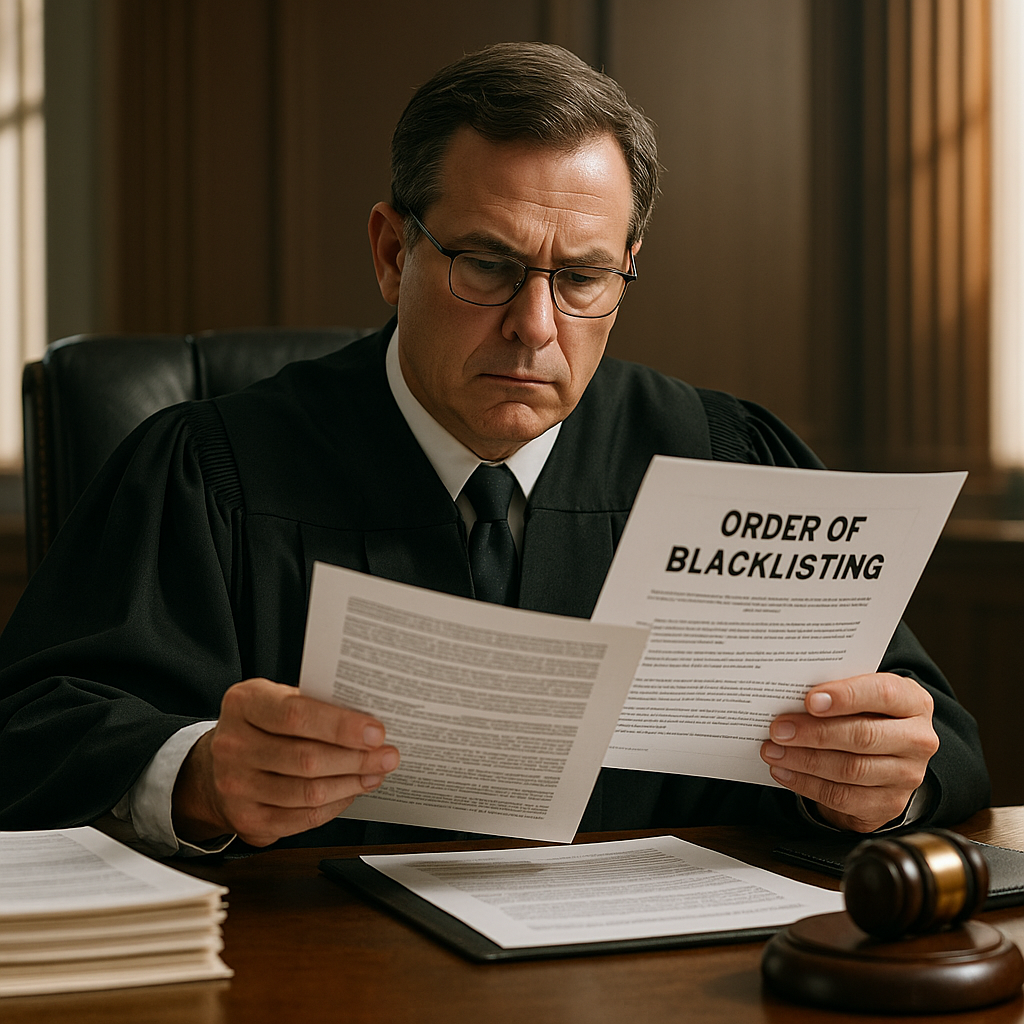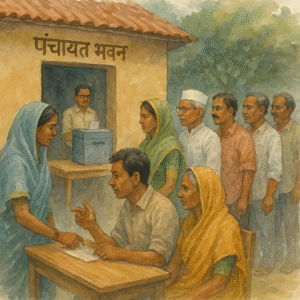Simplified Explanation of the Judgment
In a significant ruling, the Patna High Court has struck down the indefinite blacklisting of a digital services company engaged in conducting online examinations for the Bihar Education Department. The Court held that the order was both procedurally unfair and disproportionate to the alleged lapses.
The petitioner, a digital services provider, was selected through a tender process (RFP dated 22.09.2023) to set up an online examination system and conduct computer-based tests (CBT) for students of Class IX and X under the Bihar School Examination Board and SCERT. The contract was awarded for five years, extendable by two more years.
Issues arose when several irregularities were detected during the Competency Examination-2 (CTT-2), conducted between 23.08.2024 and 26.08.2024. One major issue was the repetition of questions in five subjects. This led to the SCERT ordering a re-examination in seven subjects.
Consequently, the petitioner was issued a show-cause notice for blacklisting. Despite providing a detailed response attributing the issue to delayed question paper delivery by SCERT itself, the petitioner was blacklisted for an indefinite period. The termination of the contract also followed, though that part was not contested in this writ.
The petitioner argued that the blacklisting order was:
- Passed without adequately considering its defense,
- Cryptic and non-speaking,
- Disproportionate as it imposed an indefinite ban despite partial responsibility on the authorities.
The Patna High Court agreed with the petitioner. It emphasized that blacklisting is a serious action with long-term civil consequences. Therefore, such decisions must pass the tests of fairness, proportionality, and reasonableness.
The Court found merit in the petitioner’s claim that many of the anomalies were caused due to SCERT’s late submission of questions—sometimes as late as the exam day itself. Despite that, the petitioner conducted re-examinations efficiently and without asking for additional payment.
In its analysis, the Court emphasized that:
- Blacklisting for an indefinite duration is legally unsound unless justified,
- The authority failed to consider mitigating factors,
- The petitioner’s cooperative conduct in managing the re-exam process was ignored.
Accordingly, the Court quashed the blacklisting order and directed the competent authority to reconsider the matter afresh, after properly evaluating the petitioner’s explanation. A new decision, if any, must be made within 15 days from receipt of the court order.
Notably, the Court clarified that this decision is confined to blacklisting and does not affect the contract termination, which the petitioner may challenge separately if desired.
Significance or Implication of the Judgment
This judgment sets an important precedent for entities engaged in public contracts and digital services, especially those working with state education systems. It reiterates that:
- Procedural fairness is mandatory before penal actions like blacklisting,
- Authorities must proportionately assess blame and not impose open-ended penalties,
- Cooperation during corrective actions (like re-exams) must be considered favorably.
For the government, the decision serves as a reminder to ensure balanced and justifiable decision-making, especially when private contractors are involved in public service delivery.
It also sends a strong message to contracting agencies that errors—even when they partly arise from government departments—cannot be wholly shifted onto vendors without due inquiry and equitable treatment.
Legal Issue(s) Decided and the Court’s Decision with Reasoning
- Was the blacklisting order legally valid?
- Decision: No.
- Reasoning: It was indefinite, lacked fairness, and didn’t consider the petitioner’s explanations.
- Was the blacklisting proportionate to the fault?
- Decision: No.
- Reasoning: Fault was partly due to delay by SCERT. Petitioner acted responsibly during re-examination.
- Should the order be reconsidered?
- Decision: Yes.
- Reasoning: The matter is remitted to the appropriate authority to re-decide within 15 days, considering all relevant facts.
- Does this decision cover contract termination?
- Decision: No.
- Reasoning: Petitioner has liberty to challenge that separately.
Judgments Relied Upon or Cited by Court
- Daffodills Pharmaceuticals Ltd. & Anr. vs State of U.P. & Anr., (2020) 18 SCC 550
Case Title
SIFY Digital Services Ltd. vs The State of Bihar & Others
Case Number
Civil Writ Jurisdiction Case No.1292 of 2025
Coram and Names of Judges
Hon’ble The Acting Chief Justice Ashutosh Kumar
Hon’ble Mr. Justice Partha Sarthy
Names of Advocates and Who They Appeared For
For the Petitioner:
Mr. Chitranjan Sinha, Sr. Advocate
Mr. Sriram Krishna, Mr. Amarjeet, Mr. Prabhat Kumar Singh, Mr. Shashank Shekhar Kumar, Advocates
For the State:
Mr. Ajit Kumar, AC to GA-9
For BSEB:
Mr. Satyabir Bharti, Sr. Advocate
Mr. Abhishek Anand, Ms. Kanupriya, Advocates
Link to Judgment
https://www.patnahighcourt.gov.in/ShowPdf/web/viewer.html?file=../../TEMP/8d3f8fb5-ab7c-48bd-bea7-42072d85009d.pdf&search=Blacklisting
If you found this explanation helpful and wish to stay informed about how legal developments may affect your rights in Bihar, you may consider following Samvida Law Associates for more updates.








